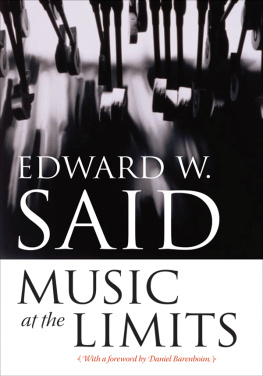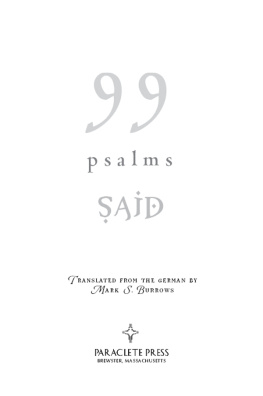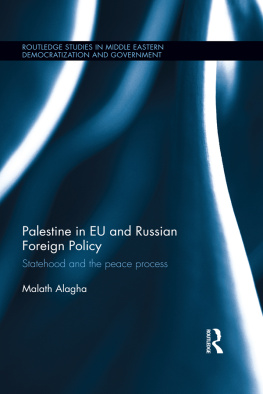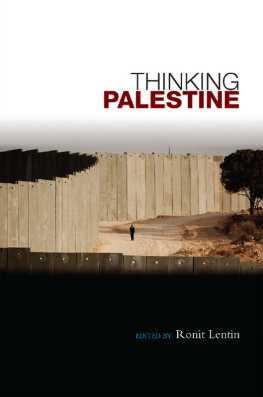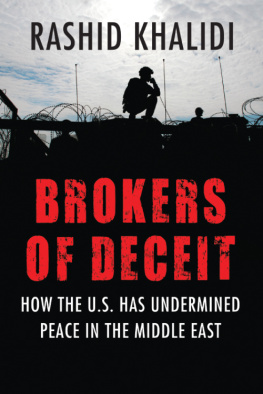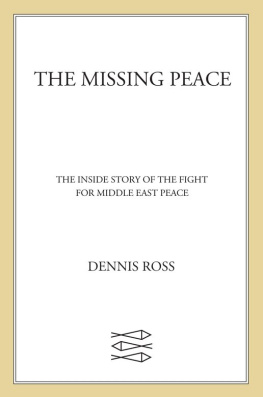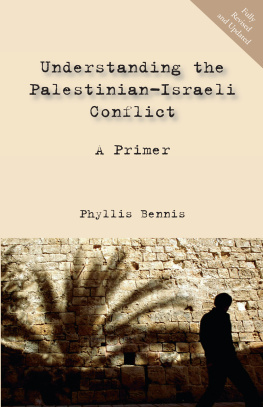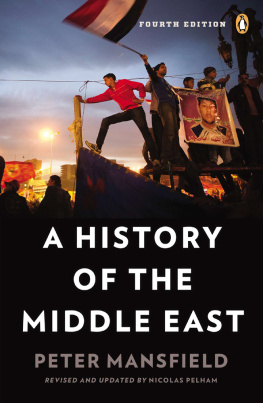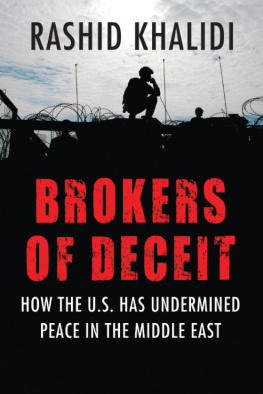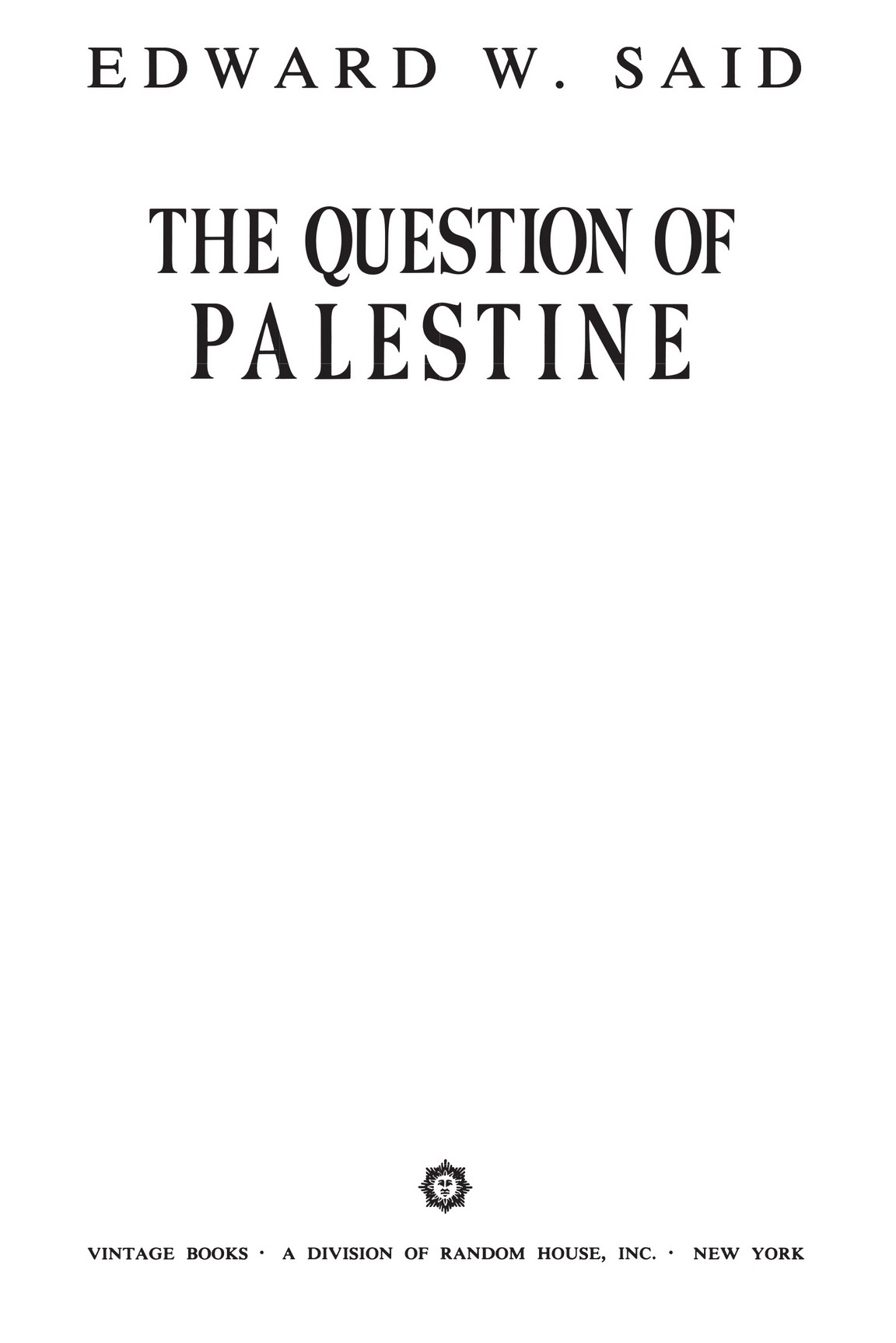EDWARD W. SAID
Edward W. Said was University Professor of English and Comparative Literature at Columbia University. He was the author of more than twenty books, including Orientalism, which was nominated for the National Book Critics Circle Award; Culture and Imperialism; Representations of the Intellectual; The End of the Peace Process; Power, Politics, and Culture; and Out of Place: A Memoir. His books have been published in thirty-six languages. He died in 2003.
B OOKS BY E DWARD W. S AID
Joseph Conrad and the Fiction of Autobiography
Beginnings: Intention and Method
Orientalism
The Question of Palestine
Covering Islam
Literature and Society (editor)
The World, the Text, and the Critic
After the Last Sky (with Jean Mohr)
Blaming the Victims (editor)
Musical Elaborations
Culture and Imperialism
The Politics of Dispossession
Representations of the Intellectual
Peace and Its Discontents
The Pen and the Sword
Entre guerre et paix
Henry James: Complete Stories, 18841891 (editor)
Out of Place: A Memoir
The End of the Peace Process
The Edward Said Reader
Reflections of Exile and Other Essays
Power, Politics, and Culture: Interviews with Edward W. Said
Parallels and Paradoxes: Explorations in Music and Society (with Daniel Barenboim)
Humanism and Democratic Criticism
From Oslo to Iraq and the Road Map
On Late Style
Vintage Books Edition, April 1992
Copyright 1979, 1992 by Edward W. Said
All rights reserved under International and Pan-American Copyright Conventions. Published in the United States by Vintage Books, a division of Random House, Inc., New York, and simultaneously in Canada by Random House of Canada Limited, Toronto. Originally published in hardcover, in somewhat different form, by Times Books, a division of Quadrangle/The New York Times Book Co., Inc., New York, in 1979.
Library of Congress Cataloging-in-Publication Data Said, Edward W.
The question of Palestine/Edward W. Said.Vintage Books ed.
p. cm.
Originally published: New York: Times Books, 1979. With new introduction and epilogue.
Includes bibliographical references and index.
ISBN 0-679-73988-2
1. Jewish-Arab relations.2. Palestinian Arabs.I. Title.
DS119.7.S333 1992
327.56940174927dc2091-50707
eBook ISBN9781101971604
CIP
v4.1
a
In memoriam
Farid Haddad
Rashid Hussein
Contents
(Map of the Israeli Settlements on the West Bank appears on .)
Preface to the 1992 Edition
This book was written in 197778 and published in 1979. An enormous amount has ensued since then, including the 1982 Israeli invasion of Lebanon, the onset of the continuing intifada in December 1987, the Gulf crisis and war of 1990 and 1991, and the convening of a Middle East peace conference in late October and early November 1991. With the addition to this extraordinary mix of events of such things as the massive changes in Eastern Europe and the dissolution of the Soviet Union, the freeing of Nelson Mandela, independence for Namibia, the end of the Afghanistan war, and regionally, of course, the Iranian revolution and its aftermath, we are in a new, but no less perilous and complex, world. And yet, strangely and unhappily, the question of Palestine remainsunresolved, seemingly intractable, undomesticated.
Two decades after Black September (1970), the main aspects of Palestinian life remain dispossession, exile, dispersion, disenfranchisement (under Israeli military occupation), and, by no means least, an extraordinarily widespread and stubborn resistance to these travails. Thousands of lives lost and many more irreparably damaged seem not to have diminished the spirit of resilience characterizing a national movement that, despite its many gains in achieving legitimacy, visibility, and enormous sustenance for its people against staggering odds, has not discovered a method for stopping or containing the relentless Israeli attempt to take over more and more Palestinian (as well as other Arab) territory. But the discrepancy between important political, moral, and cultural gains on the one hand, and, on the other, a droning ground bass of land alienation, is at the heart of the Palestinian dilemma today. To speak of this discrepancy, in aesthetic terms, as an ironic one is by no means to reduce or trivialize its force. On the contrary: what to many Palestinians is either an incomprehensible cruelty of fate or a measure of how appalling are the prospects for settling their claims can be clarified by seeing irony as a constitutive factor in their lives.
Paradox and Irony: The PLO and Its Environment
In the aftermath of the Gulf War, United States Secretary of State James Baker completed a series of eight trips to the region and successfully set out the main lines of a peace conference, its aim the settling of the Arab-Israeli conflict in general and that conflicts Palestinian-Israeli component in particular. In the Arab states he visited, he was reportedly told by every senior official with whom he spoke that no improvement in the Arab states essentially nonexistent relationships with Israel could be expected until the question of Palestine was seriously addressed. Yet, at the same time, the PLO was snubbed throughout the Arab states of the coalition, Palestinians in the Occupied Territories continued to experience even greater hardship because of the disruption of funds from the Gulf, and the situation of Palestinians resident in the Gulf states was precarious. Most dramatically, the entire Palestinian community in Kuwait underwent severe tribulations, with torture, deportation, arbitrary arrests, and summary killings the order of the day. Leaving aside the immeasurable material losses to this community and its dependents in the Occupied Territories, there is the additional fact that the restored Kuwaiti authorities announced that those Palestinian residents who left Kuwait during the Iraqi occupation would not be allowed back, leaving hundreds of thousands of refugees in a Jordan already severely overburdened. Those who remained face astringent measuresamong them further deportation and imprisonmentagainst them.
Thus the averred moral and political centrality of the Palestinian issue to official Arab discourse is scandalized by the actual relationship between the Palestinians as a real people, political community, and nation on the one hand, and the Arab states on the other. This particular contradiction takes us back to 1967, for the emergence of the Palestinian movement after the June War was fueled by a wish to compensate for the appalling performance of the Arab armies against Israel. In an important sense, then, the critical, almost abrasive relationship between Palestinian activity and the Arab state system is structural, not incidental. With the rise of the PLO in the late sixties came such things as a daring frankness, an unusual new cosmopolitanism in which figures such as Fanon, Mao, and Guevara entered the Arab political idiom, and the audacity (perhaps even brashness) attendant upon a political movement proposing itself as capable of doing better than many of its benefactors and patrons.


